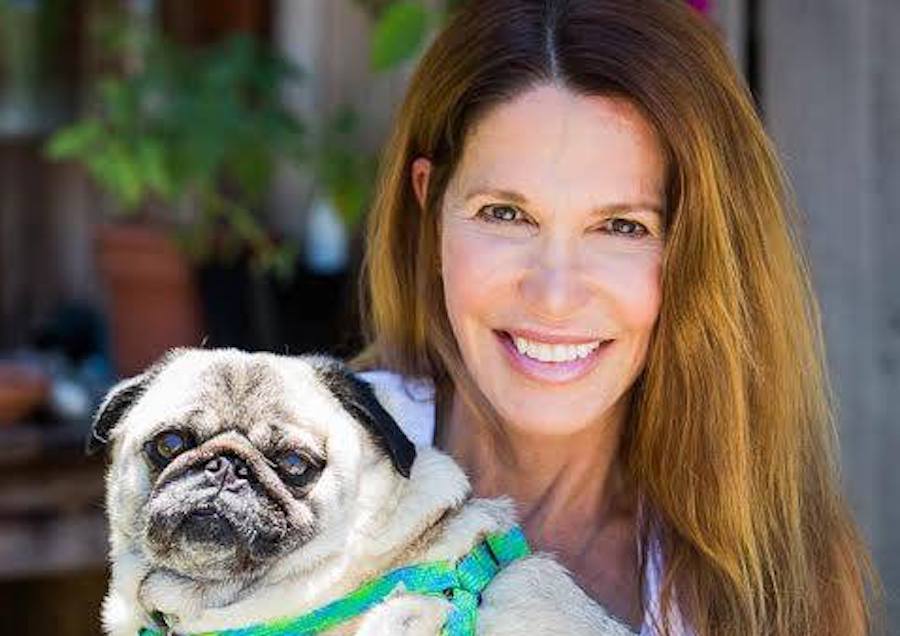The Life-Changing Lesson I Learned From My Father’s Struggle With Alzheimer’s

When I learned that my father had Alzheimer’s, along with the grief that hobbled me came an overwhelming sense of loneliness. I would have to figure out how to lose my father – this elusive man who I had always wanted to know better – and I would have to do it alone. That last thought came not just from the fact that my family is not a communicative, close tribe who are bonded together in good times and bad; it came because I knew that each of us was going to have to lose him in our own way. That’s the harsh truth even in the closest families. Each individual loses that person according to the architecture of their relationship. So how was I going to navigate this journey? A journey that, in 1994, no one was talking about even though many people were experiencing it.
One of the things I told myself early on was to keep reminding myself, there is a different way of looking at things. Whether it’s the situation as a whole – an incurable disease that always wins in the end – or the small moments when I would inevitably see what was being stolen away. I told myself that I was going to have to look beyond what my eyes were seeing and my ears were hearing. I was going to have to widen my perceptions, go deep into my faith, and keep asking myself, like a mantra, how can I see this differently. It became one of my guideposts during the decade of my father’s illness.
What I didn’t realize was that it was also becoming a tool for my whole life. The challenges in my relationship with my mother were very real, and always had been, but as her health declined, I learned to look at her with a sort of sad tenderness. My mother had not exactly relished the role of motherhood, and therefore hadn’t gotten from it the joy that I see in friends of mine who are mothers. It was that perception that guided me when I wrote my eulogy for her, when I searched our history and remembered instances when she had shown up, lovingly, as my mother. I said in my eulogy, I choose to remember those times. It doesn’t mean the difficulties weren’t profound, but it does mean that they aren’t the whole story.
Around that time, I had also come up with the idea of doing a documentary based on my family home movies. I was looking at those movies differently, watching my mother as a young woman holding me, comforting me, being nurturing and maternal. This is part of our story too, I thought, and it should be out there in the world. That documentary is now being made and I continue to see different sides of my parents in that footage and in photographs we’ve dug up, mostly because I’m willing to see my family through a wider lens. One of the tools that helped me through the piracy of Alzheimer’s is now helping me in other aspects of my life.
Months before my mother died, I began a new novel. The first line came to me and I knew I was starting a book. I also knew that what I was focusing on in my own life was going to be a theme. The Wrong Side of Night is about a woman whose mother dies, leaving her with the residue of a relationship that was troubled and extremely challenging. She is left an orphan since her father and brother died on 9/11, but then things turn upside down when her brother shows up. He had been living under a false identity for eighteen years, and with his return comes a fractured family history, full of secrets, and the ultimate lesson in gaining peace of mind – choosing to look at things differently. I set my characters loose in the same landscape I had been wandering around in, a landscape in which there are more choices of how to see things than once seemed possible.
I think at the beginning of my father’s illness, I saw Alzheimer’s as a bracketed period of my life. I didn’t realize it would be transformational in many ways, that it would stretch way beyond the boundaries of that decade. We grow into who we are meant to be through many experiences, both joyful and sad, traumatic and tragic. But the point is to make sure that we do grow.
Abraham Maslow, the noted psychologist, said, “One can choose to go backward toward safety or forward toward growth.”
The most important word in that quote, it seems to me, is the word ‘choose.’
Patti Davis is the author of 12 books, including the new book “The Wrong Side of Night.” She is the daughter of President Ronald Reagan and Nancy Reagan.
This essay was featured in the March 3rd edition of The Sunday Paper, Maria Shriver’s free weekly newsletter for people with passion and purpose. To get inspiring and informative content like this piece delivered straight to your inbox each Sunday morning, click here to subscribe.
READ MORE STORIES THAT MOVE HUMANITY FORWARD
READ MORE STORIES THAT MOVE HUMANITY FORWARD
SIGN UP FOR MARIA’S SUNDAY PAPER


